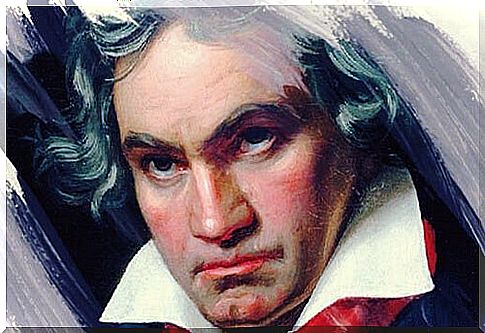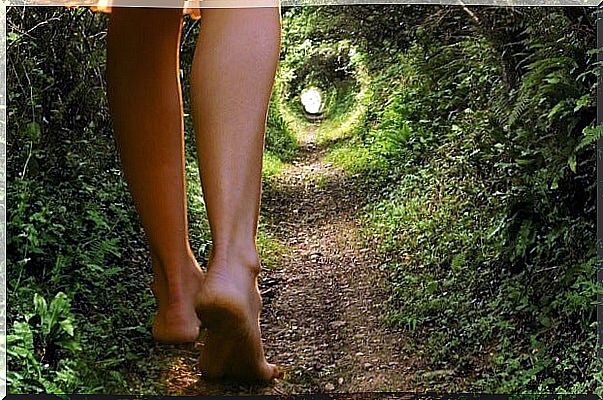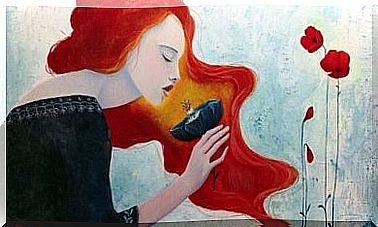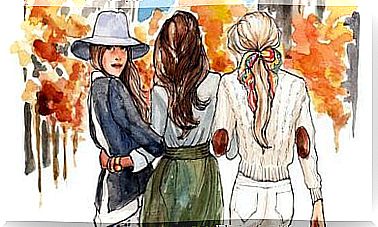Beethoven’s Habit To Enhance Creativity

Beethoven’s habit to enhance creativity has been collected in an interesting book entitled
We often think that creativity is limited to those Eureka moments when, suddenly, that bright and original idea comes to us. It is not like this. The creative person has a mind used to seeing the world in a different way ; nothing arises just because, nothing happens in that internal world if we have not previously trained our personal approach.
Thus, figures like David Lynch point out that we all have that wonderful potential. What’s more, the famous filmmaker and artist explained to us in his book titled Catch the Gold Fish: Meditation, Consciousness and Creativity , that this competition does not develop in an instant. We must train the mind, center it, calm it, so that then those fabulous ideas that swim in the depths of our being arrive.
By this we mean something very simple: to be creative you have to have discipline and method, in addition to acquiring a commitment. Routines are the key and Ludwig van Beethoven had his own, one as skillful as it was interesting from a psychological point of view that well deserves to be known.

Beethoven’s habit to enhance creativity
Ludwig van Beethoven spent much of his life in Vienna. It was here that he received his musical training and where he escaped several times to eat. It was also his precious refuge when deafness made an appearance as an important limitation (although at no time its artistic efficacy).
Vienna was not only that distinguished city where the musical elite of the time was concentrated. Thus, something that has this beautiful setting located on the banks of the Danuvio are its forests. Paths full of lights and shadows, of humidity and mystery in that northernmost part of the Alps mountain range that Beethoven traveled daily in solitude. Its purpose? Relax the mind and, in turn, soak up sensations and incubate ideas.
Absorption process and synthesis stage
Beethoven’s habit of enhancing creativity consisted of two stages: the absorption phase and the synthesis phase. The composer carried out an almost military routine in terms of this process that should inspire the most evocative and powerful musical compositions.
- The absorption phase effectively consisted of long walks through the Viennese valleys and forests. He was clear about it, inspiration does not come to anyone while sitting, because the mind requires movement to refine itself, to expand and, in turn, connect some ideas with others. For this, nothing better than long walks where you tire your feet and let nature warm your body and mind. Likewise, it was necessary to take a pen and paper to write down the ideas that were presented.
- The second stage was synthesis. It basically consisted of analyzing all those compositions that he had reflected in his notebook and then synthesizing, sifting and choosing the best ideas. He carried out this task rigorously every day, giving him, as we well know, great results.

Is Beethoven’s method effective?
When one finishes the book
These would be some of those strategies:
- High commitment in themselves. They devoted many hours to their work and, in turn, maintained a strict routine.
- Regular exercise, with walks being a key part of their routines.
- Many of these creative minds are early risers. This is because on average, they see the morning as you were hours where their creativity is most in tune.
Beethoven’s habit to boost creativity and what science says
As we can see, Beethoven’s habit of promoting creativity is not too different from what other artists carry out. Thus, studies, such as the one carried out by experts such as Dr. Marily Oppezzo, a behavioral and learning scientist at Stanford University, indicate that walking outdoors has many cognitive benefits. One of the most important is to promote creative thinking.
Beethoven knew this well and carried it out on a daily basis. However, there was something that the famous composer was also very clear about, and that is that it is not enough to stay with those random ideas that arise during walks. Real work comes later, because inspiration combined with analytical work always brings better results.
Not everything is Eureka moments, not everything is being carried away by the whispers of the muses. Creativity needs discipline, it requires strict routines, commitment and a daily job to polish every diamond that our fabulous brain gives us.









